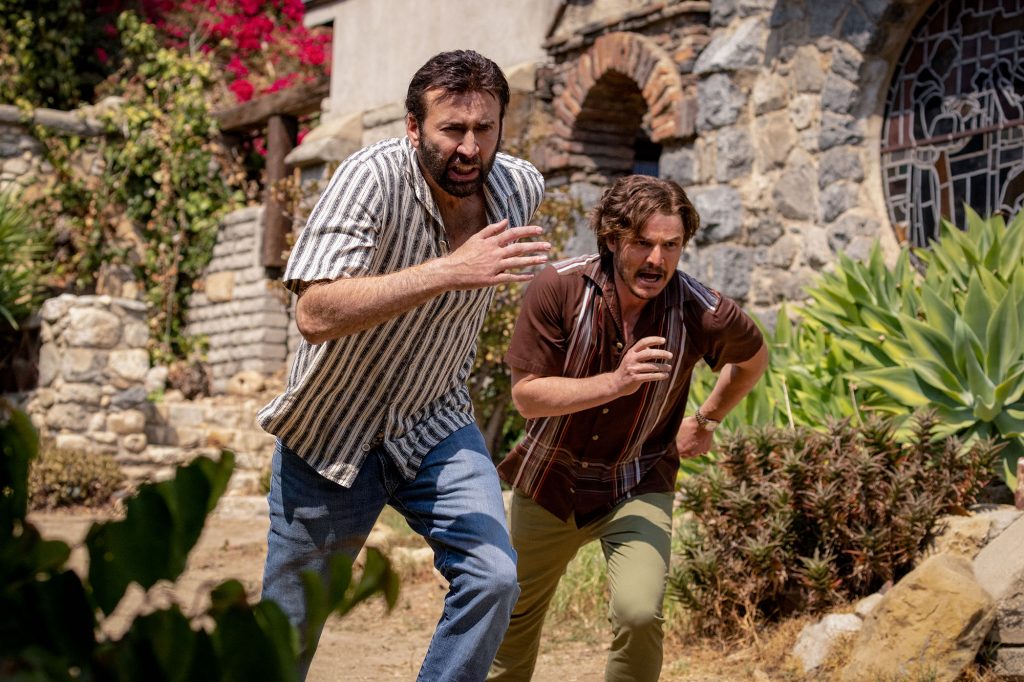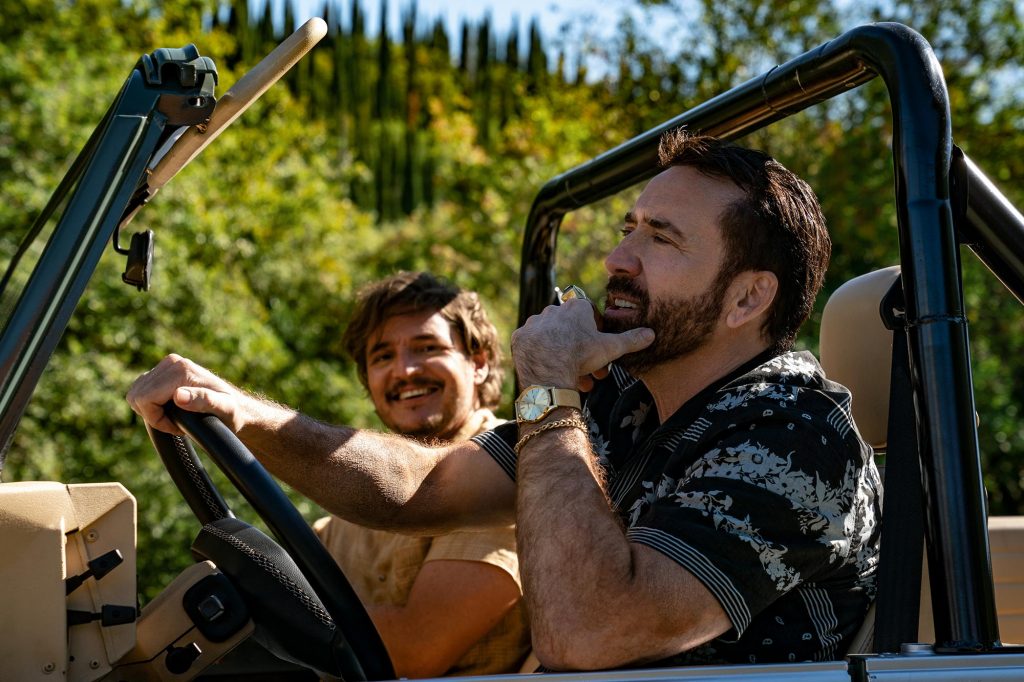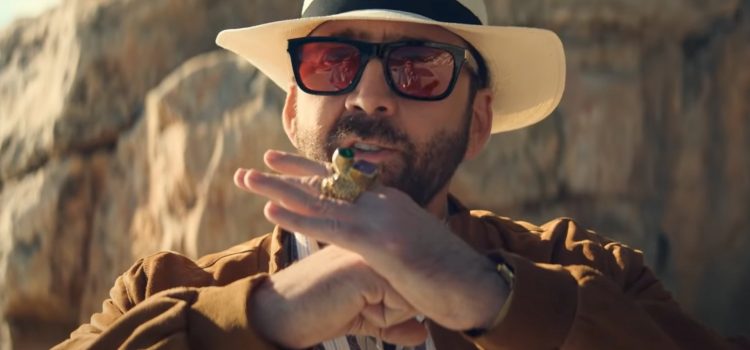By Stephe Raven
The Unbearable Weight of Being Nicolas Cage
To say that Nicolas Cage is a deep actor may be a stretch. I mean, he has actually won a few awards. To say that he is a versatile actor would be closer to the truth. Don’t get me wrong, he has made some great movies (“Raising Arizona” will always be one of my favs!). He is definitely an actor not afraid to take a chance on a role, and more importantly, to be able to laugh at himself. Being an actor who is known for his quirky characters, he really does know how to let us laugh along him on any crazy ride.
That being said, when you sit down to watch “The Unbearable Weight of Massive Talent,” you have no idea what you are in for, but I have to tell you, it’s a ride worth hanging on to. Cage plays a loose version of himself as a down-on-his -uck actor looking for that next film that will showcase his talent.
His agent (a nice cameo of Neil Patrick Harris) gets him a gig being himself for a rich super fan, the job paying him a cool million just to appear at this guy’s birthday party and even reading a script that the guy wrote himself just for, yep you guessed it, Nic Cage.
The fan is played quite charmingly by Pedro Pascal. He is such a fan that he has his own Nicolas Cage museum, which goes off the deep end but has to be experienced to see what an avid junkie he is.

They seem to be in such a sweet bromance that your teeth start to hurt and you are waiting for a big smooch…no but seriously, they seem to find this perfect comedic timing together and you want them to be best buds.
The antics with these two were fun to watch for sure.It doesn’t seem like it will work, but as the plot moves along it just does. You seriously think it’s a total cheese fest, but it works!
All that gets ruined for you when the CIA (hello Tiffany Haddish, you sure are busy this year!) decide they need need help taking down Nic’s new bestie, who appears to be an arms dealer. Every time you think it can’t get any more unbelievable, it does…but not in a bad way.
Hilarity and LSD take us down the rabbit hole and actually all makes for a silly, but fun movie. And let me tell you, there are so many Nic Cage Easter eggs, you may have to see the movie a few times to catch them all! Not gonna win any awards here, but it was a lot of fun seeing on the big screen.
We all need some Nicolas Cage to get us out of the leftover pandemic fog we have been in. Go have some fun and get those laugh muscles back in shape!

“The Unbearable Weight of Massive Talent” is a 2022 comedy-action film directed by Tom Gormican and starring Nicolas Cage, Nicolas Kim Coppola, Pedro Pascal, Neil Patrick Harris, Tiffany Haddish, Ike Barinholtz, Lily Sheen and Sharon Horgan. It runs 1 hour and 47 minutes and is rated R for language throughout, some sexual references, drug use and violence. It opens in theaters on April 22.
Raven has been writing reviews since her high school newspaper was silly enough to give her space! She continues to write for various outlets as well as guest reviews on radio and podcasts everywhere. She calls the Twin Cities as home, where she wrangles her annoyed cat daily.

